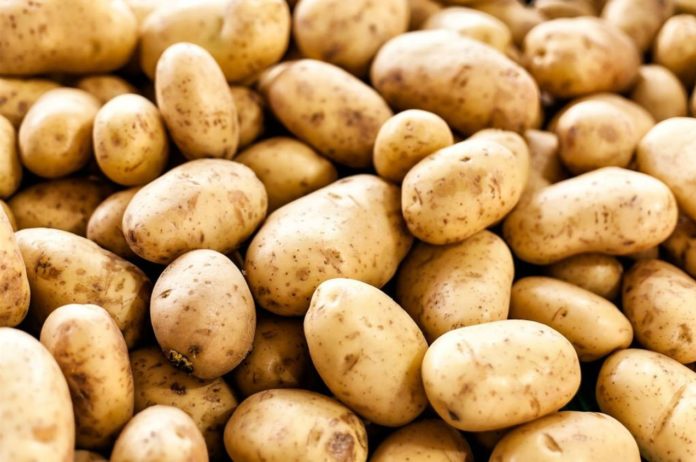A new study has figured out how to make potatoes even healthier for people with diabetes or those trying to lose weight.
Scientists have revealed that they are testing a new method of preparing potatoes that should make the starch easier for human systems to absorb. Laboratory tests demonstrate that the method prevents some digestive enzymes from rapidly reaching the potato starch, resulting in a more regulated release of dietary glucose.
Amy Lin, PhD, head of the Food Carbohydrate Program says that “There is a perception that potato foods are unhealthy because eating a large amount of some potato foods can cause a rapid increase in blood sugar, which is a risk for people with diabetes or those trying to lose weight.” This new research “that toggling the accessibility of two digestion enzymes — α-amylase and mucosal α-glucosidase — in the small intestine is a successful strategy to make dietary glucose slowly and continuously release from potatoes.”
Gomez, Andrea Maqueo Cerecer, a postdoctoral research researcher at A*STAR, will discuss the findings live at NUTRITION 2022 LIVE ONLINE.
For the novel processing method, researchers cubed potatoes and blanched them for 30 minutes in hot water containing a food-grade additive. The solution contains a component that meets the U.S. Food and Drug Administration’s “generally recognized as safe” threshold for food-safe chemicals.
This process reacts with pectin, a water-soluble fiber found in potatoes, to make a gelling structure that keeps digestive enzymes from getting to the starch granules. This protective layer has holes in it, and the way the potato is processed lets the size of the holes be changed to control how quickly -amylase can get into the potato parenchyma cells and break down starch into small molecules. The conversion of starch molecules to glucose is dependent on mucosal α-glucosidase, which is too large to pass through those pores. As a result, the amount of dietary glucose raised by processed potatoes is determined by how quickly tiny starch molecules drain out of parenchyma cells and are digested by mucosal α-glucosidase.
“Without our treatment, enzymes move freely in and out of cells, and starch is quickly degraded by both enzymes and rapidly converted to glucose,” Lin added. “The treatment allows the starch to be slowly degraded to prevent a spike in glycemia and then fully converted to glucose to meet our energy and nutritional needs.”
The approach isn’t meant to stop the potato from being digested; rather, it’s meant to slow digestion and prevent a spike in blood sugar. According to the researchers, the alteration could help consumers feel fuller for longer after eating the treated potatoes, preventing overeating.
The approach worked well in laboratory experiments with a simulated digestion process, according to the researchers. Treatment raised the fraction of starch that is deemed poorly digested from 10% to 35% while dramatically reducing the ability of the enzyme a-amylase to access starch within cell walls.
Treated potatoes are not shelf-stable because the technique effectively pre-cooks them, but they can be frozen and then cooked or further processed for recipes like roasted potatoes, hash browns, soups, or stir-fry, according to the researchers. Initial taste testing revealed that the texture and digestion of the product were both satisfactory.
The researchers are now ready to assess the effects on digestibility in a clinical trial as the next stage. They also want to see if a similar method may be applied to improve other common dishes.
Image Credit: Getty
You were reading: A New Way To Make Potatoes Avoids Blood Sugar Spikes – Scientists Just Found
